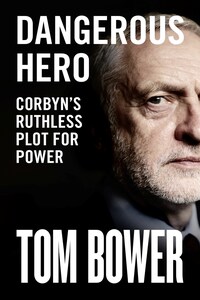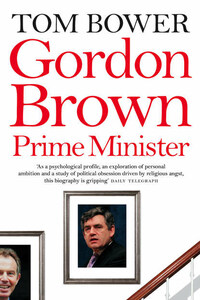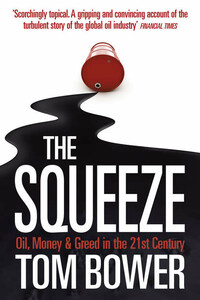William Collins
An imprint of HarperCollinsPublishers
1 London Bridge Street
London SE1 9GF
www.WilliamCollinsBooks.com
This eBook first published in Great Britain by William Collins in 2019
Copyright © Tom Bower 2019
Cover image © Getty Images
Tom Bower asserts the moral right to be identified as the author of this work
A catalogue record for this book is available from the British Library
The publishers have made every effort to credit the copyright holders of the material used in this book. If we have incorrectly credited your copyright material please contact us for correction in future editions.
All rights reserved under International and Pan-American Copyright Conventions. By payment of the required fees, you have been granted the non-exclusive, non-transferable right to access and read the text of this e-book on screen. No part of this text may be reproduced, transmitted, down-loaded, decompiled, reverse engineered, or stored in or introduced into any information storage and retrieval system, in any form or by any means, whether electronic or mechanical, now known or hereinafter invented, without the express written permission of HarperCollins.
Source ISBN: 9780008299576
Ebook Edition © February 2019 ISBN: 9780008299590
Version: 2019-03-18
The genesis of this book started exactly fifty years ago.
At the end of January 1969, a group of Marxist and Trotskyist students at the London School of Economics led a stormy protest against the school’s director, an authoritarian from Southern Rhodesia. He had ordered the staff to close a series of gates inside the building in Aldwych to prevent a students’ meeting in the school’s Old Theatre. In the mêlée, at about 5 p.m., a caretaker guarding the gates died from a heart attack and the students instantly started a month-long occupation, igniting similar sit-ins across Britain’s universities.
Throughout that first night of occupation, hundreds of LSE students crowded into the Old Theatre to debate the prospects of a Marxist revolution in Britain. Led by American graduates from Berkeley, California, where the student revolt against the Vietnam War had started five years before, and with speeches from French and German students, battle-scarred from 1968 street fights in Paris and Berlin, LSE’s Marxists and Trotskyists (there were many) told us we were the vanguard of a worldwide revolution – which would begin with the students, and the workers would follow. We believed it.
Aged twenty-three and from a conservative background, I had completed my law degree at the LSE (the country’s best law faculty at the time), and while studying for the Bar exams was employed on legal research projects at the college. Long before that dramatic night I had concluded that English law protected property rights at the expense of the rights of individuals and real democracy. Surrounded by articulate Marxists studying sociology and government, and going to lectures by Ralph Miliband and other Marxist teachers, I became attracted to their analysis of society. In that era, for anyone interested in politics that was not surprising.
In the wake of the Sharpeville massacre in South Africa in 1960 (I had marched in protest through London with my school friends against apartheid during the early years of that decade) and the anti-Vietnam protests outside the American embassy in Grosvenor Square in 1968 (along with others, I escaped with just some nasty blows from the police), I shared the horror at the dishonesty and disarray of Harold Wilson’s Labour government. Added to that, for family reasons I was influenced by events in Germany. In particular I became fascinated by Rudi Dutschke, an erudite Marxist who spoke in graphic terms in Berlin about ‘the long march through the institutions of power’ to remove the Nazis and their capitalist supporters from ruling post-war Germany. In April 1968 an attempted assassination of Dutschke illustrated the raw battle for power between good and evil raging across Europe and America. (I would meet Dutschke later in Oxford.)
Those days and nights of long debates about politics, the economy and society were decisive for many of us involved in the LSE occupation. After a month it all petered out, but that 1968 generation was marked for life. None of us attained high office in politics, industry or education. Instead, that seminal moment in Britain’s social history created cynics: men and women who were dissatisfied, curious, nonconformist and determined to expose evil in the world, of whatever type and wherever it might be found.













